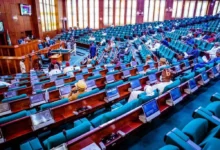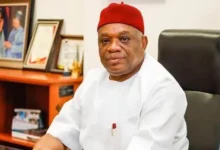
The Aro people had a belief system centered around a Supreme Being, whom they referred to as Obasi or Chukwuabiama.
When the missionaries first arrived in Arochukwu, they noticed that there were no shrines or idols dedicated to other deities.
However, this observation was not entirely accurate, as the Aro had actually embraced and incorporated a practice called Juju, which was similar to the general Igbo arusi tradition.
One prominent deity among the Aro was Nkamalo or Kamalu Akanu, who was associated with agriculture and rain/storms.
Each family had a designated area called “Ogbiti” or Ulonta, where they worshipped the “Inyim Avia,” the Aro patron spirit of commerce and wealth.
Additionally, there was Otisi, a symbol of authority and dominion, and Nkwa, a feminine aspect of Otisi representing fertility and lineage endurance.
Alaezi, the goddess of the household and doorways, was also an important deity for the Aro.
During their travels and migrations, the Aro incorporated the deities Iyieke and Ugwudike into their belief system.
However, Obasi or Chukwu remained the central and highest deity in Aro spirituality and cosmology.
The Aro established Ibini Ukpabi satellite shrines throughout Southern Igbo as a way to arbitrate disputes. This led to a period of Aro dominance over religious and commercial activities in Southern Igbo, similar to the influence Nri had over the Northern parts of Igbo land.
Additionally, wherever the Aro settled, they would also install Kamalu shrines alongside the existing native deities.
In those times, children believed to have been conceived through the oracle at Arochukwu were often given the name Nwachukwu.
This is why Nwachukwu surnames are common throughout Southern Igbo. The shrine was also known as “ibini ukpabi,” which is why the name ukpabi is also widespread in the area.











